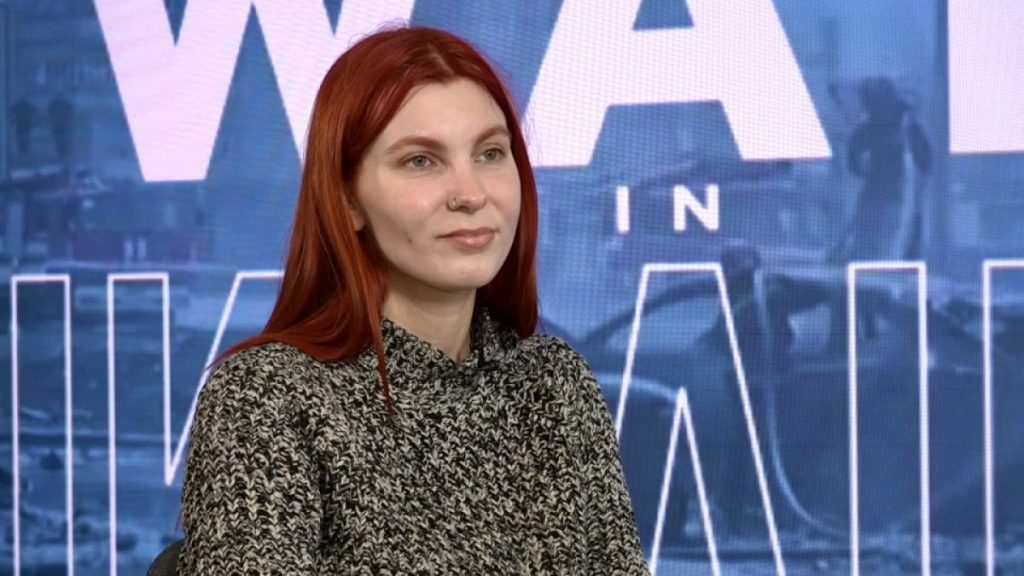Rina Reznik, a former biology teacher thrust into the role of a combat medic, finds it difficult to recall her life before the Russian invasion of Ukraine in 2022. Her existence now revolves around the relentless cycle of evacuating wounded soldiers, providing emergency medical care, and saving lives amidst the chaos of the front lines. The stark contrast between the peaceful environment of Brussels, where she attended a conference on the war’s impact on Ukraine’s healthcare system, and the harsh realities of her daily life underscored the profound chasm between her experiences and those of Europeans living in peacetime. While she acknowledges the difficulty outsiders have in comprehending the Ukrainian experience, she emphasizes the impossibility of truly understanding such suffering without living through it.
Reznik, who has spent nearly three years serving in various Ukrainian army brigades, witnessed firsthand the devastating toll the war has taken on both soldiers and medical personnel. She stresses that the fatigue experienced by Ukrainians goes far beyond what is typically understood as war fatigue. The constant exposure to death and suffering, coupled with the overwhelming workload and lack of adequate rest and mental health support, has left many physically and emotionally drained. While physical rehabilitation is a priority, the need for mental health services is often overlooked, a stark contrast to the US military where soldiers are routinely rotated out of duty due to mental health concerns. Ukrainian soldiers, however, do not have this luxury, further exacerbating the strain on their wellbeing. The sheer number of casualties and the constant influx of wounded soldiers has created a relentless pressure on the healthcare system, forcing medics to make agonizing triage decisions about who receives immediate care and who must wait.
The overwhelming number of casualties, particularly the young age of many of the wounded, weighs heavily on the minds of Ukrainian medical professionals. Reznik describes the emotional toll of witnessing so much suffering and the frustration of not having enough time or resources to provide adequate care for everyone. This constant exposure to trauma, coupled with the immense pressure to make life-or-death decisions, has taken a significant toll on the mental health of healthcare workers. The sheer volume of patients, often numbering in the hundreds per day, makes it difficult even to remember the faces of those treated, let alone process the emotional impact of their injuries. The word “triage” has become synonymous with dread, as medics are forced to prioritize patients based on the severity of their injuries, knowing that some will inevitably have to wait for treatment, potentially with dire consequences.
Reznik’s experience has also made her a passionate advocate for reforms in Ukraine’s healthcare system, particularly in the realm of battlefield medicine. She highlights the need to adapt and innovate in the face of the specific challenges presented by the war in Ukraine. Due to the constant threat of artillery and air defense systems, medical evacuations by helicopter, a common practice in other conflicts, are often impossible. This necessitates ground evacuations, which are lengthy, dangerous, and expose both patients and medics to enemy fire. Unlike the “Golden Hour” principle commonly practiced in other militaries, which aims to get casualties to surgical care within an hour, Ukrainian medics often require days to evacuate wounded soldiers, making early blood transfusion a critical life-saving measure.
The sheer scale of the conflict and the extended frontline necessitate a massive and efficient blood supply network. Reznik, whom she refers to as the “ambassador of blood,” emphasizes the crucial role of blood transfusion in the battlefield. She has dedicated herself to advocating for improvements in blood transfusion practices, addressing logistical challenges like safe transportation and storage of blood units across the vast frontline. The implementation of these changes has already yielded positive results, with blood transfusions being performed remarkably close to the front lines, demonstrating the adaptability and resilience of Ukrainian medical personnel.
The ongoing war has exposed critical shortcomings in Ukraine’s healthcare system and highlighted the need for immediate and long-term reforms. Reznik points out the disproportionate burden placed on the civilian healthcare system, which has had to absorb a staggering number of casualties. She compares the number of prosthetics provided by the Walter Reed National Military Medical Center in the US over two decades to the current needs in Ukraine, highlighting that the US two-decade supply would only last two months in Ukraine. This stark comparison underscores the immense scale of the healthcare crisis facing Ukraine and the urgent need for international support. The experience gained in Ukraine will undoubtedly reshape the landscape of combat medicine, offering valuable lessons for future conflicts.
Reznik’s account provides a poignant glimpse into the human cost of the war in Ukraine, extending beyond the immediate casualties on the battlefield to the profound psychological impact on both soldiers and medical personnel. Her story underscores the urgent need for continued international support, not only in providing essential medical supplies and equipment but also in addressing the long-term mental health needs of those impacted by the conflict. The war in Ukraine has not only transformed Rina Reznik’s life but also exposed the resilience and adaptability of the Ukrainian people in the face of unimaginable adversity. Her experiences serve as a powerful testament to the dedication and courage of those on the front lines, highlighting the urgent need for international support to address both the immediate and long-term consequences of this devastating conflict.














